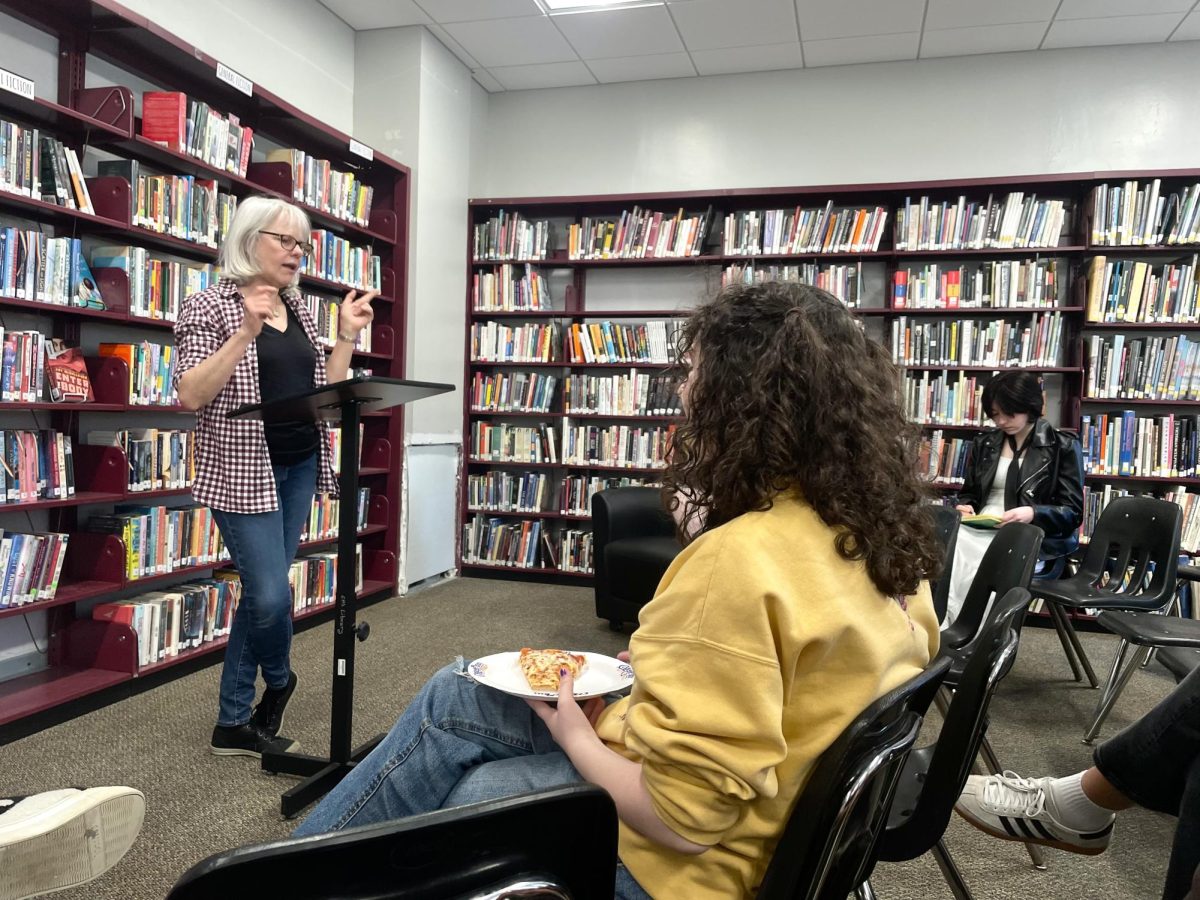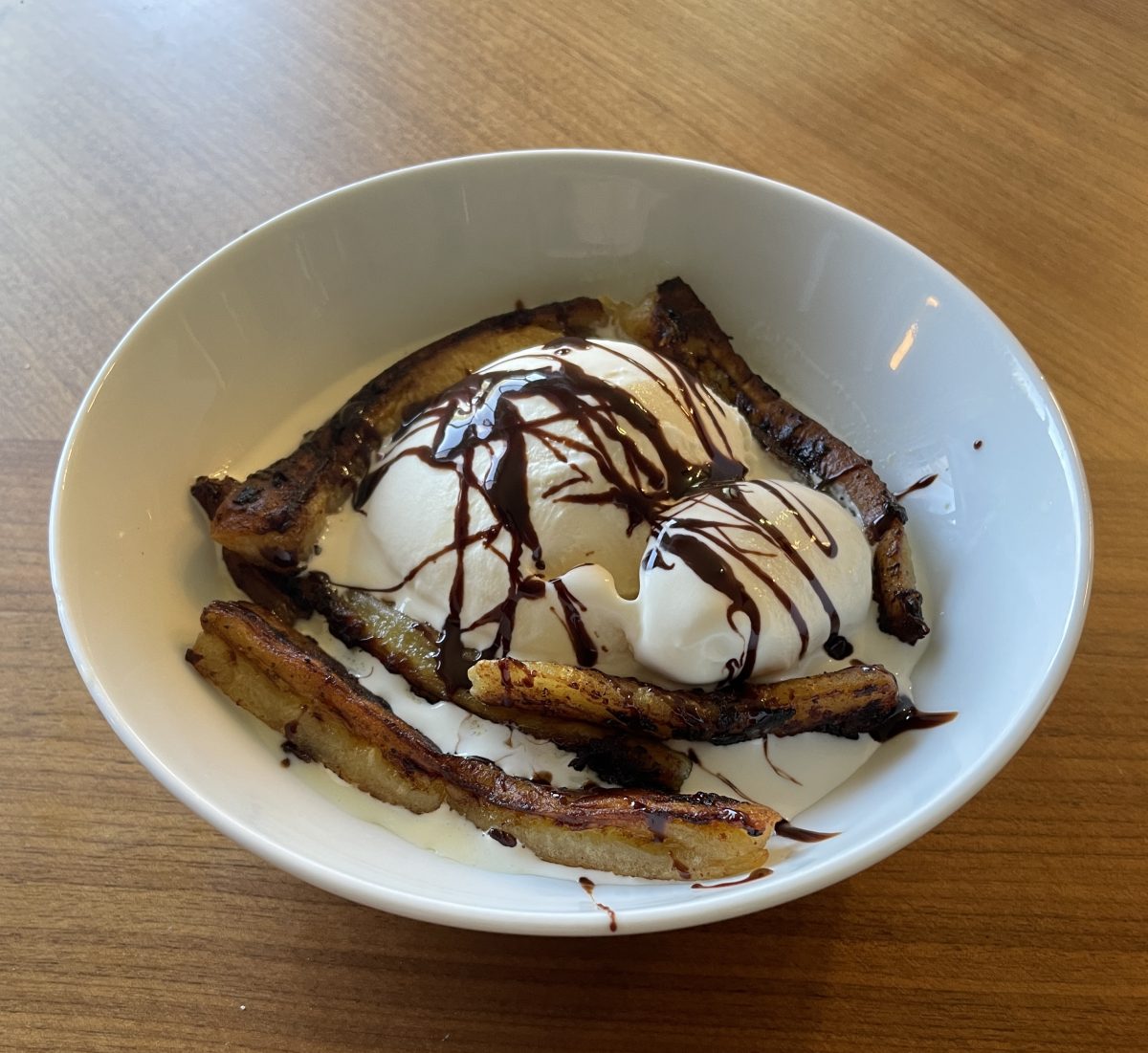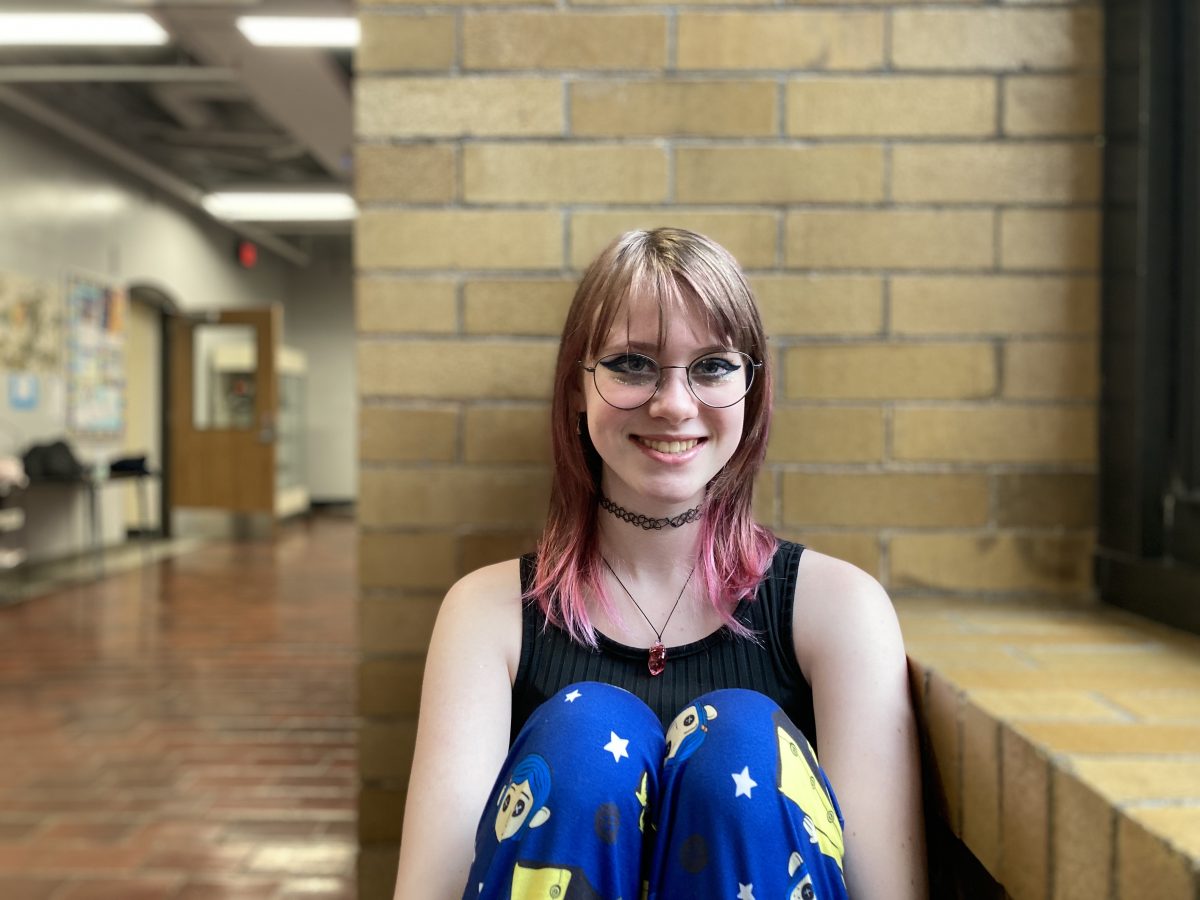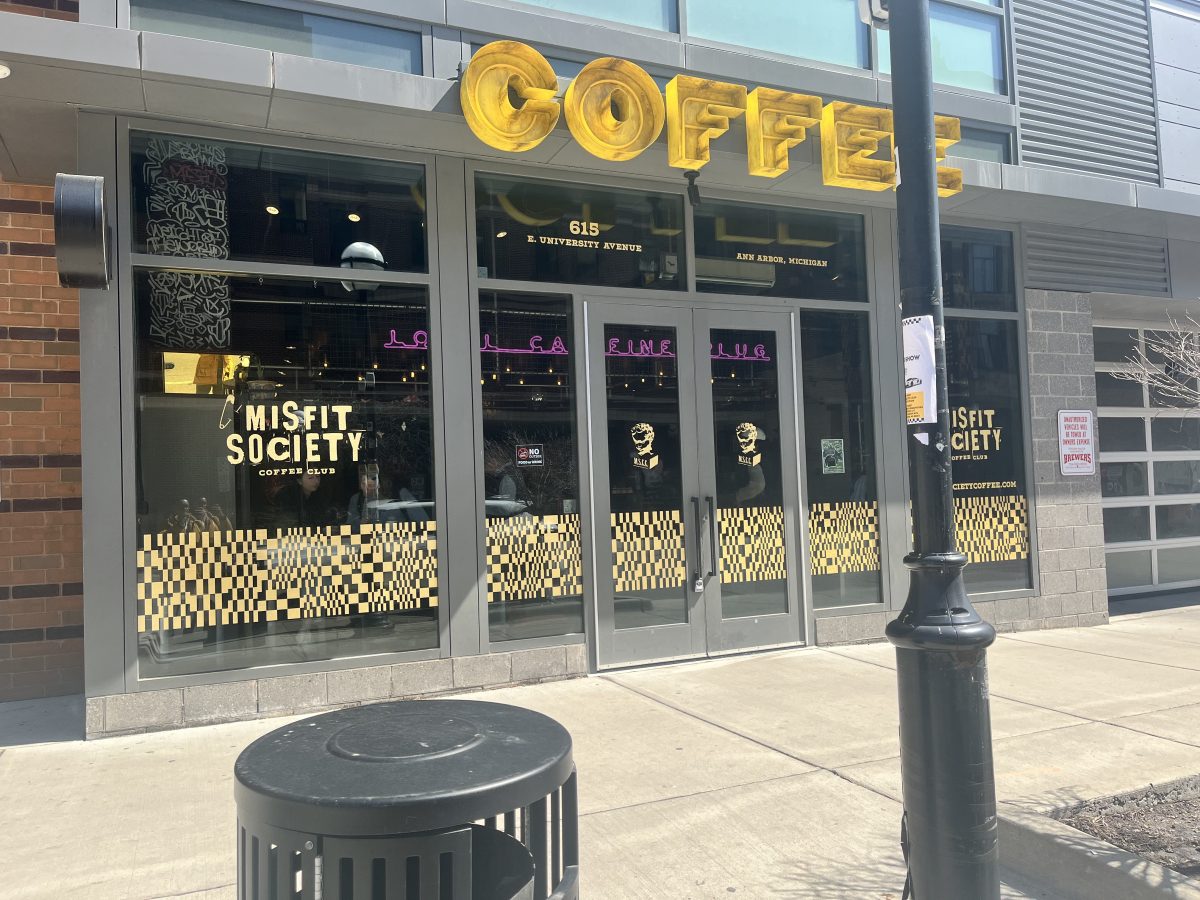On Monday, April 15th, the CHS Poetry Club hosted the Poetry and Pizza event, combining a favorite food of many with the joys of spoken poetry. Though at first perhaps an intimidating scene, a welcoming aura radiated from the rows of chairs and the pizza-adorned folding table set up for the reading. After enough people had shuffled in, the event began. Ellen Stone, the advisor of the poetry club, kicked things off.
“Oh my goodness, we have an audience! This makes me so happy! There’s nothing worse than having like 50 chairs in the theater and 10 people in there,” Stone exclaimed. “It’s very embarrassing.”
Things were kept quick, as she briefly espoused the setting and the availability of pizza. “If you’re just getting here, you can have as much pizza as you want, because we have a lot of it,” Stone explained. “So don’t feel like you’re a glutton if you have three pieces of pizza. That’s normal.” After stepping down from the podium, she ushered up the first student poet.
As many writers took the stage, various styles and subject matters were displayed. The opening recitation was performed by Cypress Milligan, who read two long-winded epics full of metaphor and imagery. Hard-hitting passages abounded:
“Now we never decided which should be left and which was right,” Milligan said. “And when you were never there, when the bell would ring, when the end finally comes, will you start to sing? Say, oh, give me your memory.”
Next was Elliott Paloff, who also read two of their poems. Both focused on war and religion, a particular niche of the poet.
“I love writing both of those two things,” Paloff admitted prior to the reading. “That and bugs, that’s like all I write about.”
Concise and impactful, Paloff’s first poem centered around maggots and their apparent misrepresentation by society. Their second poem, “Young Progress,” analyzed the darker side of medicine.
“The Hippocratic Oath is hypocritical,” Paloff proclaimed. “For all men are equal in the eyes of God, the same cannot be said for the eyes of science.”
Following Paloff was Claire Lewis, who offered a breath of fresh air from the darker intensity of the previous poets. Offering three shorter poems, Lewis’ poems filled the room with an air of summer memory.
“We would pick mulberries from her two giant trees,” Lewis recited nostalgically. “Mashing them down into a fine paste that we would eat like candy. The minutes used to feel like hours, but the days used to swing…”
Her next poem illustrated the atmosphere of an uneasy Christmas, and her final poem was a poignant analysis of feelings of insecurity and loss of innocence.
As Lewis stepped down, Emily Yesowitz took to the stand. The first of her evocative poems described her existence as changes in states of matter, blending scientific language with emotional metaphor and meaning. Her poems were full of deftly chosen descriptors and impactful images. Next was Leila Bank, another poet with a unique sensibility. Bank delved into the idea of nothingness, personifying “nothing” as a wretched beast, terrorizing its environment. Her other poem, “Generational Distress,” on the surface was more mundane, merely analyzing the scene of describing a crush to her grandma. However, the poem’s simplicity gave it a deep sense of universality and the relatability of emotion that all generations felt. Bank then read a meta-poem on what makes a good poem. Grieta Ham followed, continuing the theme with another poem about good poetry.
Ham read about the power of poetry and how it can manipulate and consume people. Ham’s next poem was a cento, meaning a poem created as a patchwork of other written works. The fragmented nature of this approach gave way to a beautiful work, read off an unassuming cut-and-paste paper that could be at home in an elementary art room. Once finished, Walker read his poems: two short-but-sweet texts that cut no corners and spared nothing in quality.
Suddenly, a figure emerged from the audience holding a paper plate engraved with the scribblings of a sudden poetic brainwave. It was Briar Nordstrom, who took the stage to read a poem they had written on the back of a pizza plate just minutes before. It was poignant nonetheless, a lilting ode to gentle physicality. Though slated as the closing reading, one final entry made his bid for the stand.
Last but certainly not least, Robert Lavlinet came prepared with an epic for our modern times: “Lich King Joe Biden.” Seemingly endless, the humorous tale described a future in which Joe Biden never relieves himself of the presidential role. As the decades and centuries roll by, the American empire falls deeper into fantastical insanity. Joe lives until the end of time, standing by while the atoms fall into their final stillness. On this absurd and wholly unexpected ending note, Poetry and Pizza had come to an end, and the advisor of the poetry club thought the event had gone swimmingly.
“I thought it went great,” Stone beamed. “I was so excited. I always get nervous because in the beginning, there were like three people here. And then all of a sudden, hordes of people came in.”
Using pizza consumption as a measure of merit, the event passed with flying colors.
“It’s all gone? This never happens,” Stone jokes, referring to the table of empty Cottage Inn boxes. “This never happens, so it’s really successful.”










